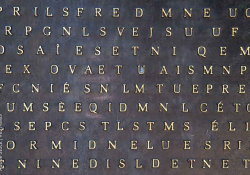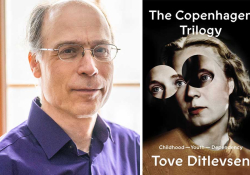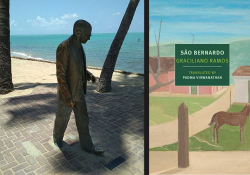Translating Each Other
I recall, I translate my beloved Larkin: “La noche no ha dejado nada más que mostrar: / ni la vela ni el vino que dejamos a medias, / ni el placer de tocarse; / solamente este signo de tu vida / caminando por dentro de la mía” (Night has left no more to show, / Not the candle, half-drunk wine, / Or touching joy; only this sign / Of your life walking into mine).
Love and translation look alike in their grammar. To love someone implies transforming their words into ours. Making an effort to understand the other person and, inevitably, to misinterpret them. To construct a precarious language together. In order to translate a text satisfactorily, you have to desire it. Covet its meaning. A certain need to possess its voice. In that dialogue which alternates between routine and fascination—prior knowledge and learning in progress—both parts end up modified.
The lover sees himself in the beloved, looking for similarities in their differences. Every small discovery is incorporated into their shared vocabulary. Still, no matter how much he tries to capture the other’s language, what he ultimately receives is a lesson about his own language. Their coexistence is that seductive and stubborn. The person who translates approaches a strange presence in which, in some way, he recognizes himself. The text offers him a partially indecipherable mystery and, at the same time, a kind of essential familiarity. As if translator and text had already spoken before meeting.
Translators and lovers develop an almost manic sensitivity. They doubt every word, every gesture, every insinuation that confronts them. They jealously suspect everything they hear: I wonder what they really wanted to say to me? By loving and translating, the other person’s intention runs into the limit of my existence. I read myself reading you. I hear you to the extent that you know how to talk to me. But if I say something, it’s because you have spoken to me. I depend on your word, and your word needs me. It’s saved in my correct answers, it survives my mistakes. In order for this to work, we have to admit the obstacles: we’re not going to be able to read each other literally. I’m going to manipulate you with my best intentions. What isn’t negotiable is emotion.
Translation from the Spanish
By George Henson











